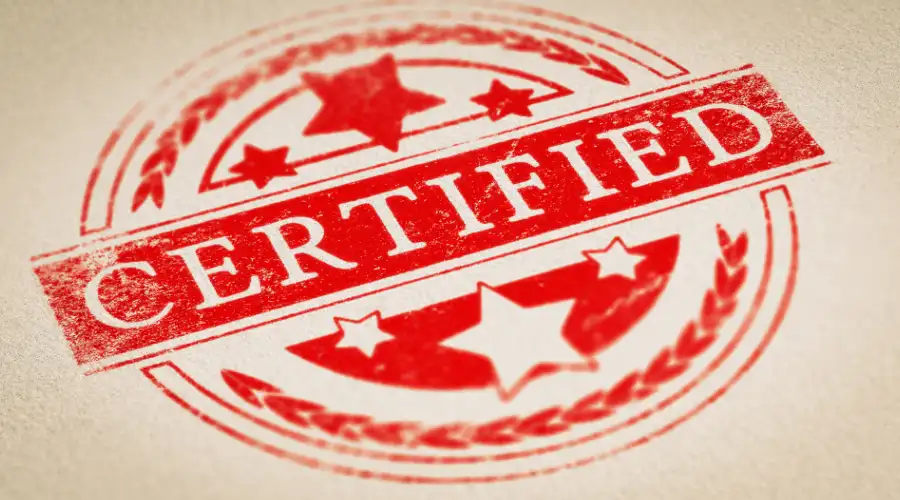A residence certificate is a government-approved credential that is proof of a citizen residing on that particular site. You can obtain this certificate from the government and public offices. The residence certificate is proof of residence for a person who lives in a particular house or building. To learn more about residence certificates, scroll down.
What is a Residence Certificate?
A residence certificate is an official document issued by the state or local government authorities to confirm that a person resides in a specific location. It is essential to access government-related services, employment needs, a legitimate identity, and social requirements. While it is an important supporting document, it is not a substitute for an identity card. The certificate typically includes the person’s name, address, and duration of residence and is issued by the Tehsildar, District Collector, or local Municipal office.
Importance of Residence Certificate

The focus of getting a residence certificate is to show evidence that an individual is a resident of that specific area. The certificate is used in educational institutions for scholarships and fee exemptions. This specific certificate is essential for the job recruitment process to cross-check the employee’s details. Moreover, the residence certificate is crucial for election votes, quotas, and applying for any other related documents.
Eligibility Criteria for Residence Certificate
- Permanence: An individual who applies for the residence certificate must be an unchanging resident of that place. It can be any district, state, or country. The permanent resident is calculated when an individual or a family lives there for more than 6 years.
- Strong Ownership: If the citizen owns the land or the property, that individual has a high chance of building strong ownership. For example, in Tamil Nadu, strong ownership is built after 5 years of being a resident; in Maharashtra and Karnataka, it is 15 years, and in Uttar Pradesh, it is 3 years. You can Check Property Ownership to understand the specific criteria in each state.”
- Parents’ Residential: If the applicant is born in some other place, but the parents live there as permanent residents, then the applicant can also be a legal resident of the property.
- Eligible Documents: An individual with a voter ID, any government identity proof, a ration card, a birth certificate, and more is eligible to apply for residential certification.
Documents Required for Residence Certificate
- Residence Proof
The resident needs to submit proof, such as a ration card, voter identity card, tax receipt of the property, and bank passbook. These are the most needed documents to proceed with the application for a residence certificate.
- Government Identity Proof
The identity proof from the government is also mandatory, such as a PAN card, Aadhaar card, a licence, a passport, and more. Already registered government ID proof is essential to handle the process further.
- Self-Declaration
The resident should write a letter or form stating his or her residence, along with the resident’s place, which is called an affidavit. This needs a signature before the magistrate’s examination.
- Photograph
The photograph of the resident is essential. It has to be passport-size. 2 or 3 photos are more than enough to apply for the residential certificate. The photo has to be in colour because a black-and-white passport-size photo is not accepted for the residence certificate process.
- Date of Birth
The date of birth, place, and time are needed along with the birth certificate to generate a residential certificate.
- Additional Documents
There are also additional supporting documents like property documents, employment certificates of the resident, tenancy agreements, and more. It is highly likely that these documents will be requested during the application process for a residence certificate.
An individual must verify the accuracy of all the mentioned proofs and credentials that are self-assessed and submitted by the resident. Furthermore, we recommend obtaining additional soft copies of the document for emergency purposes.
Steps to Apply for a Residence Certificate Online
The process of applying for resident certification differs from state to state. Below are the common application steps for a residence certificate online.
Step 1: Find the resident’s respective official state portal. E.g., Rajasthan, Delhi, or Madhya Pradesh. Each state has its own government website.
Step 2: Click the respective state portal and begin your registration by clicking New Registration. Enter your name, date of birth, mobile number, Aadhar number, and other necessary information. Another essential step is to create a username and password to sign up.
Step 3: The page navigates to log in after entering the details. Now click the services option and then certificate services. This will show a residence certificate as an option, and click to apply.
Step 4: Fill out the application form in the residential certificate service and upload all the required documents.
Step 5: Submit the form after uploading the proofs, and click the payment and transaction method to pay the fees.
Step 6: After the payment, download the receipt, and your physical verification will be done in a local tahsildar office. Once the verification is complete and approved, you can then download your residential certificate from the portal.
Steps to Apply for a Residence Certificate Offline
Step 1: The resident must visit the local office and ask the help desk to proceed further.
Step 2: Visit the local government office and ask for the residential application form. Fill it out according to the instructions. Take a soft copy of all your required original documents and attach them to the application form for reference.
Step 3: Submit the application; the local office will perform physical verification, just like when you apply online.
Step 4: Once verification is done successfully, the residence certificate will be provided by the government.
Residence Certificate Validity
Each state and country has different validity periods for the residence certificate. The usual validity time is more than 6 months and less than a year from the date of issuing the residence certificate. For example, places like Jammu and Kashmir, Manipur, and Meghalaya have a residence certificate validity of one year. Moreover, residence certificates must be regularly updated for the right ownership, address, and contacts.
Conclusion
One of the government-approved documents for various uses, including academic, social, and employment fields, is the residence certificate. The importance of a residence certificate is to prove that an individual is living permanently in a specific place. Also, every citizen must have a residence certificate to avoid future legal issues. Why not take this opportunity now? It’s the right time to apply for the residence certificate. It is available both online and offline. Choose your convenience, collect all the necessary documents, and begin your process.

